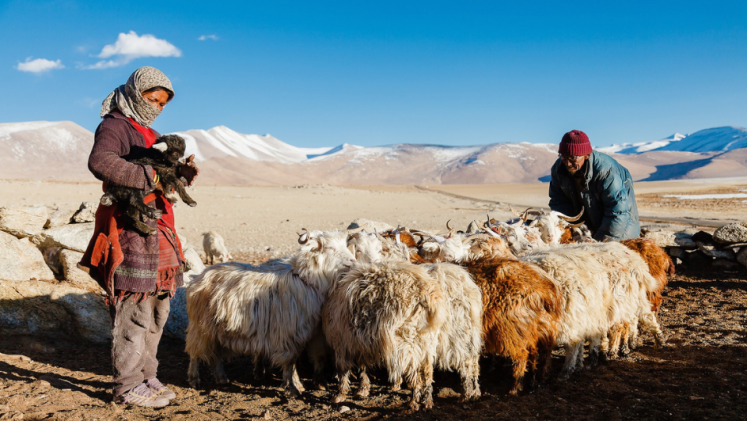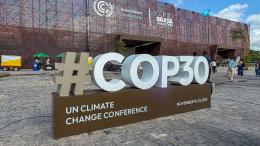Mountains are a place of natural beauty and stunning landscapes. However, they are much more than scenic wonders. They provide a wide range of vital goods and services to the valleys and the plains downstream: thanks to mountains more than half of the global population receives fresh water supplies. Large portions of the world-wide sustainable energy stems from mountain hydropower stations and mountains host more than half of the biodiversity hotspots on our globe.
At the same time, mountains are highly sensitive to climate change. The latest IPCC reports underline the growing adverse consequences of climate-related hazards, such as flash floods and landslides. There is a clear warning that overshooting the target of the Paris agreement to keep global warming below 1.5 °C, will change and damage large parts of mountain ecosystems irreversibly.
A First: Expert Mountain Dialogue at Climate Talks
Despite their crucial importance and evident vulnerabilities, mountain regions have often been overlooked in global climate negotiations and priority-setting for protection and adaptation efforts. Therefore, it was long overdue when COP 28 in the UAE endorsed a mountain-specific perspective and called for the first expert dialogue on mountains at the June Climate Talks in Bonn.
This dialogue provided a unique opportunity for scientists, policymakers and ‘frontline’ communities (indigenous peoples and those who experience climate change impacts first and worst) to share knowledge, experience and insights on challenges and opportunities of mountain ecosystems. One objective of the event was an enhanced understanding of climate change impacts on mountains and downstream communities. The main part of the dialogue was solution-oriented: the aim was to showcase interventions that successfully contribute to an increased resilience of mountain ecosystems and to discuss ways how to accelerate climate actions in various regions and at various scales.
Global and regional perspectives on mountain systems
Key messages from the dialogue emphasized the far-reaching impacts of climate change in mountain regions, which often extend across national border and affect downstream communities. Local communities must be at the forefront of adaptation efforts, with a focus on grassroots movements, marginalized groups and youth. Integrating indigenous knowledge and nature-based solutions is vital for developing innovative solutions. There is an urgent call for more scientific activities in mountain areas, including localized and downscaled climate change scenarios and a deeper understanding of social vulnerabilities. These scientific findings need to be integrated into policies and actions. Mountain regions demand stronger representation in global negotiations, including IPCC reports, National Adaptation Plans (NAPs), Nationally Determined Contributions (NDCs) and forest initiatives like REDD. There are concerns about the reliability of early warning systems for threats such as Glacial Lake Outburst Floods, along with the negative impacts of conflicts and out-migration on development. Above all, there is a critical need to keep global warming below 1.5°C to protect mountain ecosystems and livelihoods.
Next steps: Continue to put mountains on the map
The Mountain Dialogue showed that the various actors and Parties who are directly or indirectly related to mountain regions have a strong interest, willingness and need to cooperate to protect and sustainably manage their mountains. The participants evaluated the Mountain Dialogue very positively. They saw a unique added value in the event as it was the first of its kind and they appreciated the possibility to develop regionally specific recommendations. So, where does this mountain community go from here?
There was a strong interest of the dialogue participants in a more strategic “mountain agenda” in the climate talks. This includes institutionalizing the Mountain Dialogue at future climate meetings, encouraging existing initiatives such as the Nairobi Work Progamme to take a mountain perspective or fully recognize mountains in the ongoing deliberations of the Global Goal on Adaptation and the UAE framework for Global Climate Resilience.
Events such as this first Mountain Dialogue within the climate talks provide visibility and momentum to the unique challenges faced by mountain social-ecological systems. This attention hopefully translates into more recognition, including by providing additional support for solutions on the ground and practical research. Because to put it into the words repeatedly cited during the Mountain Dialogue:
"What happens in mountains does not stay in mountains."




